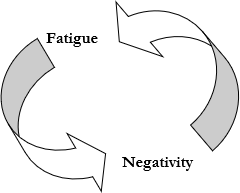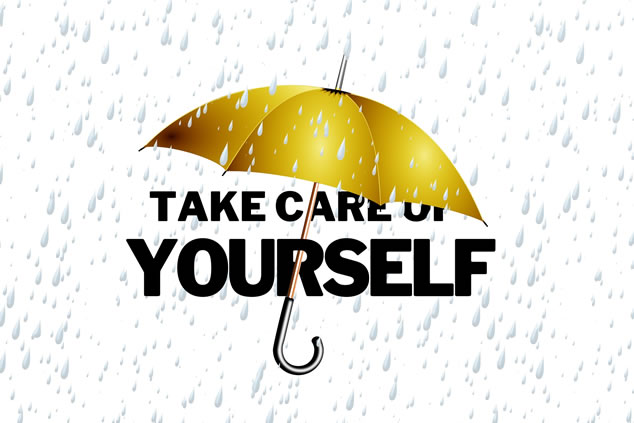How are you doing?
11/4/2022 12:00:00 AM
 Though important and meaningful, caring for your loved one can be difficult. The stress of caregiving can take a toll on your body and soul, heart and mind, on your finances, family and work-life. To “go the distance” on your caregiving journey, it’s important that you recognize the costs of caregiving and act in ways that protect your health.
Though important and meaningful, caring for your loved one can be difficult. The stress of caregiving can take a toll on your body and soul, heart and mind, on your finances, family and work-life. To “go the distance” on your caregiving journey, it’s important that you recognize the costs of caregiving and act in ways that protect your health.
Has caregiving taken a toll on your health and well-being? Check out these caregiver assessments to get a read on how you’re doing. And remember, all of us who give care need to take care. As you do so much for others, remember to care for yourself as you care for others…Jane
Direct Link: https://www.help4cgs.com/Blog.aspx?ID=1&PostID=14
Depleted
7/1/2022 12:00:00 AM
Have you ever felt like you were drowning in work and too depleted to do it all? Thought so! Most caregivers feel this way from time to time. We earnestly want to help and, in our desire to do good for others, we sometimes overextend and exhaust ourselves. Caring takes physical, mental and emotional energy, all finite resources
I’ve noticed that a vicious cycle starts when my energy is spent; nothing looks or feels right. I become unsure and anxious; pessimistic thoughts drain away my usual optimism. Negative thoughts weigh on my mind and disturb my sleep. Tired from poor sleep, I have even less energy. Doing anything becomes a chore, which further sours my outlook as I force myself to continue doing the things I feel responsible for doing. What was once viewed positively becomes a burden.

Though I’ve written a book on self-care for caregivers, I’m human. Sometimes I forget to practice what I preach about conserving and restoring energy. When my life gets out of balanced, I recall the advice I’ve given others about ways to avoid feeling depleted.
Recommit to balancing responsibilities, relationships, commitments and energy. Be a good steward of your energy. While engaged in a task, do your best. At the end of the task, the work day or week, let it go. Turn it off. Refocus on other elements of life that are important or fun.
Don’t act like a machine. You’re not an engine that uses an external power source like batteries or electricity to keep going. Not mechanical, your energy is organic; it comes from within. It ebbs and flows and can only be replenished by your choices and behavior. Not limitless, it’s very important to recognize and respond when your energy is running low. Say “no” to over extending yourself. Take a break when you’re tired. Recharge with people and pastimes that bring relaxation, joy, or pleasure.
Avoid stress numbing. Using food, drink, shopping or screen-time to distract, escape, postpone or mute stress provides momentary relief. The problem is, these numb your sense of depletion but don’t restore positive energy. Relying on these can lead to harmful outcomes.
Engage in healthy self-care. These “good-for-you” practices energize, relieve stress, and promote relaxation. Walking, singing, journaling, praying, talking with friends reading, and getting a good night’s sleep are a few examples of ways I restore my energy; what works for you?
If you’re feeling depleted, what can you do to feel better? For some ideas, follow this link to download your Self-Care Checklist. Whatever you do to boost your energy will benefit both you and your care receiver. As you do so much for others, remember to take good care of yourself, too…Jane
Direct Link: https://www.help4cgs.com/Blog.aspx?ID=1&PostID=10
Self-Care: Nice to Do or Necessary to Do?
6/17/2022 12:00:00 AM

How are you doing? During the years when my husband and parents needed care, I was often depressed and worn down by juggling sad situations and endless responsibilities. There was never enough energy or time. I’d fall into bed each night, exhausted by all I’d done and worried about all that was yet to do. Overloaded with so many demands, my needs often fell to the bottom of the priority list.
If you’re a caregiver, you know caring for others isn’t easy. Yes, it’s a meaningful and important, kind and generous thing to do. But many times it’s demanding, difficult and downright dreadful. Has it taken a toll on your physical or mental health, on your personal finances, family relationships or work-life? If so, you’re not alone.
Here are some facts: There are over 53 million family caregivers in the US, more than 1 in 5 Americans; 23 million are also employed. Since the pandemic, caregivers spend an average 28 hours/week providing care. The average duration of a caregiving experience is 4 years; many are caregivers for much longer. It’s not hard to see why over half report moderate to high levels of caregiver stress, which erodes the immune system and increases the likelihood of disease, depression or hospitalization. 20 to 30% of family caregivers use prescription drugs for depression, anxiety, and insomnia. That’s 2-3 times as often as the general population.
These facts tell us one important thing: All of us who give care need to take care!
As a nurse, I know this is true. Although I teach people about self-care, sometimes I don’t practice what I preach. Why? There are several reasons.
I have no time! 21st century life runs at a fast pace: 24/7/365. There are too many things to do and too little time. Something has to give, and usually it’s my self-care.
I feel guilty. Others’ concerns seem more important than mine, or they have more needs and fewer resources. They’re sick, vulnerable and needy; I’m healthy, strong and capable. How can I not help?
I think self-care doesn’t matter. I deny the consequences of chronic stress and tell myself I can absorb the pressure, live without a break, or a walk or some time to be with friends. I minimize and deny being overloaded, and overlook the cost of over-functioning. I turn a blind eye to the health risks, and the price I pay in my relationships and work-life.
Thoughts, feelings and choices like these push my needs down and off my priority list. Self-care becomes an unattainable nicety instead of an undeniable necessity. This is not healthy.
How about for you; is self-care a nicety or a necessity? No matter how small, whatever action you take to care for yourself in a healthy way will be good for both you and your loved ones. As you do so much for others, remember to take good care of yourself, too…Jane
Direct Link: https://www.help4cgs.com/Blog.aspx?ID=1&PostID=9
Struggling Through Tight Spots
6/2/2022 12:00:00 AM
For me, caring for others has many positive moments. It can be rewarding and inspiring; funny and surprising. But it can also have some darker moments that are frightening or depressing; tedious, tiring, or overwhelming. There are days I love it, while other times I struggle with caregiving.
During one of the most difficult periods, a dear friend sent me an email with one of those uplifting stories that circulate on the web, author unknown. It felt like this anonymous little tale had been written just for me. Its title is: The Story of the Butterfly. My version goes like this:
 One day, a man spent hours watching a butterfly struggle to emerge from within its tight cocoon. Try as it might, the butterfly couldn’t squeeze its body through the tiny hole to break free. Then it stopped, apparently exhausted and unable to make any further progress.
One day, a man spent hours watching a butterfly struggle to emerge from within its tight cocoon. Try as it might, the butterfly couldn’t squeeze its body through the tiny hole to break free. Then it stopped, apparently exhausted and unable to make any further progress.
So the man decided to help the butterfly. With a pair of scissors he gently snipped open the cocoon. The butterfly emerged easily, but to his surprise, it had a swollen body and shriveled wings.
The man continued to watch, expecting that any minute the butterfly would spread its wings and fly. It never happened! In fact, the butterfly spent the rest of its life crawling around unable to fly.
Why? Although well intentioned, the man actually hurt the butterfly. The struggle to squeeze through the tiny opening forces fluid from the butterfly’s body, shrinking it, so the wings expand. Its Nature’s difficult, but necessary, way of shaping, strengthening, and preparing the butterfly for flight.
Like butterflies, sometimes struggles are exactly what we need to shape and strengthen us. They may be painful, exhausting and unwelcomed. They may slow or stop our progress, but going through life with no obstacles would cripple us. We wouldn’t develop character, strength or the capacity to do great things. We’d never be able to spread our wings and fly.
— Anonymous
During my difficult time, it helped me to remember this story. It may help you, too. If you’re struggling like the emerging butterfly, it may seem like you’re stuck. Challenges might seem insurmountable. You may wonder if the tight-spot you’re in will ever end, or worse, will it end badly? Like the nip of those scissors, you may long for an easy solution, but as for the butterfly, these may lead to unintended consequences. However long and difficult, struggling mightily through life’s challenges builds resilience and strength. To persevere through caregiving struggles:
Conserve your energy. Balance times of action and rest. Respect your body’s need for sleep; it will restore not only your energy, but also your positive outlook.
Look for simpler approaches. Replace perfectionism. Instead, do your very best in tough situations, but let go of the need to control outcomes. Repeat this affirmation, “I do my best and let go of the rest!”
Step back to gain a better perspective. Take breaks, doing something relaxing or enjoyable. Respite is healing. Practice deep breathing or progressive relaxation to calm yourself. Ask a trusted person for their perspective on the situation.
Connect with a Higher Power. Meditate. Practice mindfulness. Pray for wisdom, strength and guidance. Remember, all things pass away…the best and the worst in life, and everything in between.
When facing caregiving struggles, whatever you do to center yourself will be good for both you and your loved ones. As you do so much for others, remember to take good care of yourself, too...Jane
Direct Link: https://www.help4cgs.com/Blog.aspx?ID=1&PostID=8
Taking My Own Advice
5/18/2022 12:00:00 AM

I just got off the phone with a friend who asked, “How are you?” Without missing a beat my response was, “Fantastic!” Just back from a much-needed vacation at the beach, even 350 emails in my inbox and a pile of dirty clothes in the laundry can’t dampen my spirits.
Yes, I’m sad that “all good things must come to an end,” but I’ve returned to my responsibilities revitalized by the rhythms of nature. What is so stirring about beautiful sunsets, blazing red and orange, fading to coral, then to pink, mauve and muted violet light that finally vanishes into the darkness of night? What is so mesmerizing about roaring ocean waves and the silent progression of tides coming in and going out twice a day, every day without exception and with no human intervention? Why does the silent flight of a lone bird at nightfall rivet my attention and stop me in my tracks?
Beholding the beauty, I am filled with joy. Compared to the grandeur, I am humbled. Witnessing the regularity, I am reassured. Observing the rare and exotic, I am awed. Living close to nature was a profoundly spiritual experience that refreshed my soul and renewed my state of mind.
The “Out of Office” notice on my email told everyone that I was taking vacation, following the self-care advice I offer to caregivers. Restored by my vacation, I’m reminded why I recommend respite. Though caring for others can be rewarding and meaningful, it’s never easy. It can take a toll: undermining physical and emotional health; eroding productivity at work and relationships at home; leading to exhaustion or burnout. Stepping away helps prevent these negative consequences and preserves the capacity to care. Rest and respite can take many forms:
Stopping for a few moments, pausing for a break, a nourishing meal, a short nap or deep breath.
Relaxing for a few hours of entertainment, good conversation, an outing or visit to your house of worship.
Getting away for a vacation, for a change of scenery and the change of perspective that inevitably comes with it.
Whether brief or extended, letting go allows body and soul, heart and mind to rest and be restored. Respite is a critical element of healthy self-care for caregivers and every human being.
How about you, what are you doing to make rest and relaxation a regular part of your life? What more could you do for yourself? As you do so much to care for others, remember to care for yourself, too…Jane
Direct Link: https://www.help4cgs.com/Blog.aspx?ID=1&PostID=7